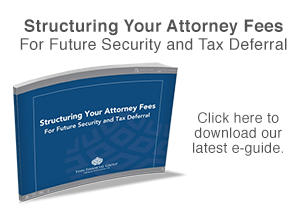Structured Settlements: Bonding Your Future
Adjusting Your Expectations in a Post-Economic Meltdown World
If you were fortunate enough to have invested in stocks over the past 30 or so years; and,
If you were fortunate enough to have stayed with it through the past four years when the financial world went crazy; and,
If you still have a good portion of what you’ve managed to sock away; then,
At the risk of over-stating the obvious, you are indeed fortunate.
But that was, as The Monkees once sang, then. This is now.
Stock-Bond Return Gap Should Narrow
MONEY Senior Editor Walter Updegrave lays out a pretty good case for why folks may want to temper their expectations about future market returns in his article “The case for investing in bonds, too.”
Back “then” stock returns significantly outperformed bonds.
But “now” the rate of return gap between the two is predicted to be much narrower according to a number of experts. This means bonds might still make a good deal of sense despite their current perceived “low” rate of return.
Even Better for Structured Settlements
Structured settlements, which are backed by portfolios consisting largely of bonds, offer superior financial security and, because benefits are paid out 100% income tax-free, they remain an excellent choice for those seeking safety and security.
And because of their decided tax advantage (principal AND interest are paid 100% income-tax free), returns can be commensurate with the after-tax, after-fee stock market returns.
Minus the risk.
Nobody knows for sure what the future holds. But we know the wild run-ups stocks enjoyed during much of the 80s/90s were pretty exceptional by historical standards. So choosing a structured settlement is still a wise choice for those who want to secure their own financial future.
Posted: September 19, 2012 | by dan | Category: Articles, Blog, Retirement, Structured Settlements



















